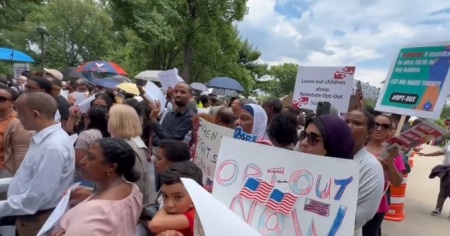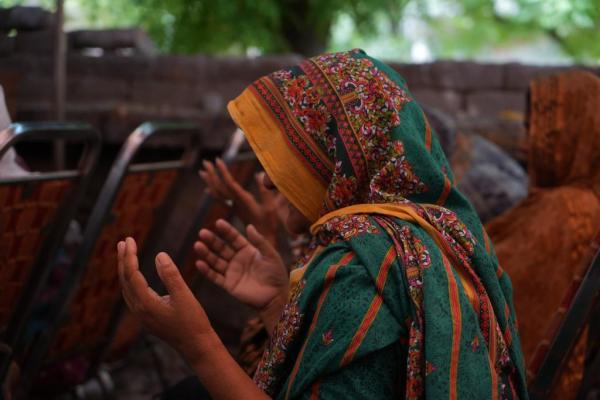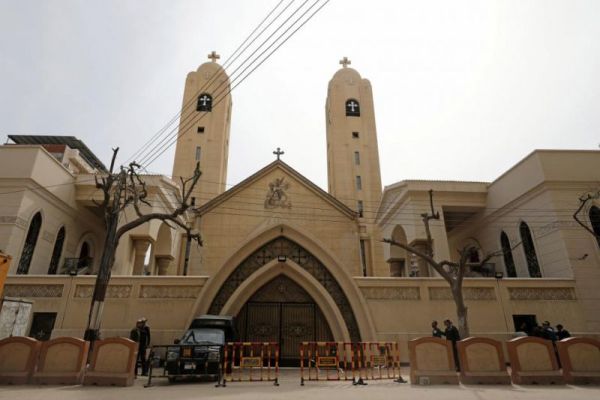Muslim parents demand school district allow them to opt children out of LGBT lessons

A national religious freedom advocacy nonprofit has threatened legal action if a Minnesota school district doesn't revise its policies to allow Somali Muslim parents to opt their children out of LGBT lessons in the elementary school curriculum.
In a letter submitted to St. Louis Park Public Schools leadership Thursday on behalf of concerned parents, the First Liberty Institute asked the school district to provide "written assurances" by Dec. 20 that their clients will receive "advance notice and the opportunity to opt out before any books or class discussions about sexuality or LGBTQ+ themes." If such assurances aren't provided by the deadline, the clients could likely pursue "all available legal remedies."
The letter voiced concern with the "Alternative Learning Procedure" created in response to parents' concerns about not having the ability to opt their children out of LGBT-related elementary school lessons. Despite efforts to mediate parents' worries, First Liberty contends that the policy does not comply with state law and "fails to provide advance notice or an opportunity to review curriculum or other materials before our clients' children are exposed to it."
Additionally, the legal group takes issue with the district's requirements that parents describe their reasoning for opting out, which they contend are "burdensome prerequisites inconsistent" with state law.
"[The] [p]rocedure invites and requires government scrutiny of religious beliefs," the letter states.
First Liberty Institute's clients represent an entire community of Somali Muslims in St.
Louis Park concerned about this issue. Their names were redacted in the letter.
The "Alternative Learning Procedure" was created following First Liberty Institute's Nov. 2 letter to school district leadership outlining their clients' concerns about LGBT-related content in elementary school classrooms.
After identifying their clients as devout Muslims with traditional religious beliefs about sexuality and gender, the letter states their clients' children, who range in age from third grade to fifth grade, informed them that they had been exposed to the concerning content.
Examples of books deemed problematic by the parents include Our Subway Baby, a book about same-sex parents adopting a child; Ho'onani: Hula Warrior, which tells the story of a child who does not identify as either a boy or a girl; and My Shadow is Pink, which promotes the concept of gender fluidity and "tells boys that they can wear dresses."
While several parents objected to including these books in the school curriculum, requests to opt out were denied.
First Liberty Institute's latest communication notes how Minnesota state law requires school districts to "have a procedure for a parent, guardian, or an adult student, 18 years of age or older, to review the content of the instructional materials to be provided to a minor child or to an adult student and, if the parent, guardian, or adult student objects to the content, to make reasonable arrangements with school personnel for alternative instruction."
"The District's Procedure fails to provide notice to parents before controversial issues are taught, or to give an opportunity for parents to review the curriculum in advance," the legal group maintains.
"If our clients submit the District's forms about the texts their children have already been exposed to ... this would be too little, too late. Our clients' children were already exposed to these texts without any notice or consent. And they have no way of knowing what books their children will be exposed to next."
Some questions on the form parents must fill out as part of the "Alternative Learning Procedure" ask, "What do you believe is the theme or purpose of this material?" and "What do you think might be the negative result of a child using this material?" Other questions on the form request that parents ponder are "What do you think might be a positive result?" and "What reviews of this material have you read or viewed?"
"This approach requires parents to expose themselves to the District's scrutiny and provide unnecessary detail about the nature of their personal views and beliefs," the Dec. 7 letter asserted.
"By asking the Parents to describe what they 'believe,' the District is inquiring into their viewpoints about sensitive topics in a way that puts their privacy at risk."
Additionally, the letter maintains that the procedure "includes several unnecessary delays that include a requirement that parents meet with their children's teacher, a 10-day window for principals to respond to parents' concerns and a 10-day window for teachers to develop an alternative learning plan.
"An entire month of school could go by before the fastest request could be processed, assuming the District would approve it with no appeals necessary," the letter maintains. "Parents would need more than a month of notice that a controversial topic was coming up, which is impossible given the current lack of notice or ability to review curriculum."
"Diversity and inclusion must extend to religious families too," said First Liberty Institute Associate Counsel Kayla Toney in a statement. "We are urging the district to follow state law and its own policy that allows parents to opt their children out of controversial subjects. State and federal laws are clear — the school is required to fully accommodate our clients."
One of the parents represented by First Liberty Institute, Fatuma Irshat, said in a statement that they believe they have a "sacred obligation to teach the principles of our faith to our children without being undermined by the schools."
"We came to America because of its rich heritage of protecting religious liberty and the opportunity to raise our children in a place where they have access to success," Irshat said.
"We're hopeful that the district will grant us a full accommodation."
In a similar case, a group of interfaith parents in Montgomery County, Maryland, sued their local school district in August, saying they could not opt their children out of lessons they found offensive and inappropriate for elementary school-aged children. Later that month, a federal judge rejected the parents’ motion for a preliminary injunction to restore the opt-out option as the case is adjudicated.
Ryan Foley is a reporter for The Christian Post. He can be reached at: ryan.foley@christianpost.com





















